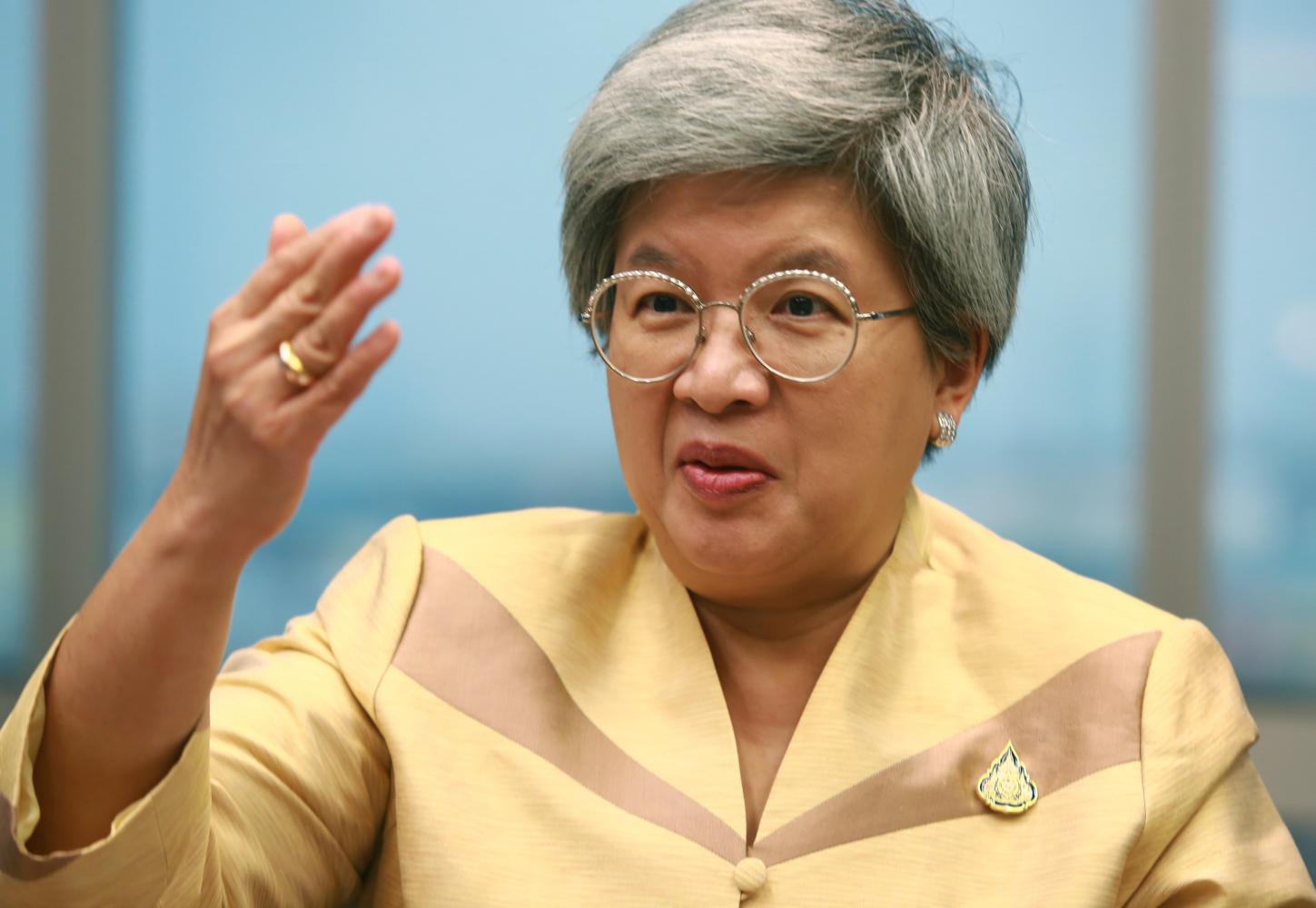
To increase Thailand's capital market competitiveness and prepare for technological disruption, the Securities and Exchange Commission (SEC) plans to build up distributed ledger technology (DLT) as the main IT infrastructure platform linking all members and products in the capital market.
DLT is among the core development policies in 2020 for the SEC.
DLT is a digital system that records asset transactions and their details in multiple places at the same time. Unlike traditional databases, distributed ledgers have no central data store or administration functionality.
Similar to blockchain technology, DLT generally refers to information that is distributed across a network and fosters a degree of transparency and openness of digital records, according to Cointelegraph.com.
The main differences between blockchain and DLT lie in how the latter restricts who can use it and access depends on permission, with a series of time-stamped "blocks" not always necessary for DLT.
DLT will become the main IT infrastructure for securities trading and acts as an investment information platform to serve all types of securities trading and debt instruments, SEC secretary-general Ruenvadee Suwanmongkol told The Bangkok Post in an exclusive interview.
DLT can link all types of products into one trading platform, while simultaneously connecting all market members on the same platform.
Besides information exchange and facilitating digital asset transactions in distributed networks, developing DLT also serves the purpose of adopting and integrating blockchain technology, said Ms Ruenvadee.
When DLT is ready for use, seamless financial innovations via blockchain will be enhanced and help transform government procedures, digital asset trading, bond trading and other derivatives products.
"DLT will help the development of the capital market through a single platform, be they securities, bonds, or other investment products, and serves future digital asset trading," she said.
Investing in the DLT system is the first priority to prepare for other digital and blockchain-based businesses.
The investment cost is steep and the SEC plans to request the sum from the Capital Market Development Fund (CMDF), said Ms Ruenvadee.
According to the Securities and Exchange Act of 2019, the CMDF is established as a juristic person to promote the development of organisations, infrastructures, personnel and competitiveness of the capital market, as well as support education, research, training and development of a knowledge pool or academic work useful for the capital market.
The fund's initial assets of 5.7 billion baht were transferred from the Stock Exchange of Thailand (SET).
The annual contribution from the SET is stipulated at a rate not less than 90% of income after deducting expenses, taxes and reserves specified by the SET's board of directors.
Artificial intelligence will also be incorporated for the e-enforcement process, facilitating the securities watchdog with greater efficiency in its investigation of cases that breach securities regulations such as fraud and insider trading, said Ms Ruenvadee.
The SEC is studying an AI-incorporated investigation model to investigate cases related to share price manipulation.
The programme will have to be tested several times before it can be used.
FUNDING ACCESS
As a cornerstone of Thailand's economy, the SEC plans to support small and medium-sized enterprises (SMEs) gaining access to raising funds in the capital market.
The market regulator will allow SMEs to issue securities products such as stocks and convertible corporate bonds, as well as make offerings directly to investors and employees.
SME clinics will also be established in provincial areas to provide investment advisory services.
Based on information gathered by the SEC, SMEs grew gradually over the past few years, with aggregated GDP of SMEs expanding by an average of 4.2% per year.
In 2018, the combined business value of Thai SMEs was worth over 7 trillion baht, accounting for 43% of the country's GDP, reflecting the importance of these enterprises in terms of national development.
If these SMEs receive development incentives and support enhancing their business potential, their output can grow to a larger extent, said Ms Ruenvadee.
SMEs hire 13.95 million employees in various business segments in Thailand, making up 85% of the country's total workforce, according to the SEC.
Earlier, the SEC planned to propose details for SMEs and startups to raise funds via the SET in early September, aiming for business operators to have easier access to raise capital.
Listing conditions will be relaxed from the bourse's mandatory conditions to launch IPOs, but information disclosure, including risks, will be disclosed thoroughly.
At present, the SET has developed services and products to attract these types of investors. For instance, Live Fin Corp's LIVE electronic trading platform, where 99.99% of shares are held by the SET, has been established to operate as a crowdfunding platform providing over-the-counter trading services for startups and SMEs.
The SEC is also considering increasing investment channels for SMEs by allowing them to establish investment funds and trusts.
The plan to facilitate investments for SMEs remains in the process of regulatory adjustment by the Office of the Council of State, she said.
"The SEC will support SMEs accessing fundraising from the capital market. This policy is in line with the government's 20-year national strategy for developing Thailand," said Ms Ruenvadee.